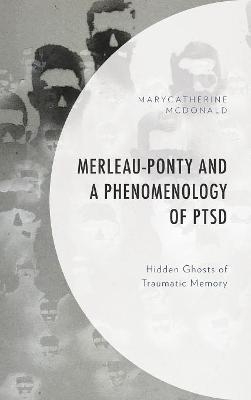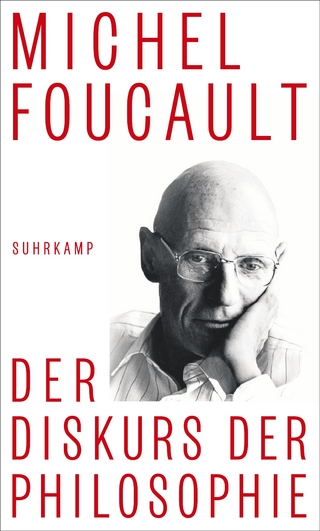
Merleau-Ponty and a Phenomenology of PTSD
Hidden Ghosts of Traumatic Memory
Seiten
2019
Lexington Books (Verlag)
978-1-4985-8042-7 (ISBN)
Lexington Books (Verlag)
978-1-4985-8042-7 (ISBN)
Merleau-Ponty and a Phenomenology of PTSD begins from the premise that trauma can be better treated if it is better understood. To that end, this book builds a prismatic account of trauma, encompassing neuroscience, psychology, and phenomenology in order to establish that trauma is an embodied, adaptive response to a world without meaning.
Despite the fact that we have been studying posttraumatic stress disorder (PTSD) since at least the late 1800s, it remains prevalent and, in many cases intractable. Merleau-Ponty and a Phenomenology of PTSD: Hidden Ghosts of Traumatic Memory begins with the assertion that we struggle to successfully treat PTSD because we simply do not understand it well enough.
Using the phenomenological approach of Maurice Merleau-Ponty – which focuses on the first-person, lived experience of the trauma victim – Merleau-Ponty and a Phenomenology of PTSD: Hidden Ghosts of Traumatic Memory focuses on reframing our understanding of combat trauma in two fundamental ways.
First, the concepts of embodiment and adaptation give us an understanding of the human being as fundamentally adaptive. This allows us to view traumatic responses as adaptive as well. When the roots of traumatic injury become reframed in this way, combat-related PTSD can be understood more accurately as a set of symptoms borne of strength and survival rather than weakness or disorder.
Second, phenomenology reveals that a different ghost haunts those who are afflicted by trauma. For the past century, trauma studies across disciplines have all assumed that the ghost of a singular traumatic event haunts the sufferer. While this is likely a part of the problem, further study shows that those who suffer from trauma are also haunted by the specter of a world without meaning. In other words, phenomenology reveals that what is injured in trauma is not just the mind or the body but the entire worldview of the individual. It is this aspect of the injury – the shattering loss of one’s blueprint of the world – that is missing from other accounts of trauma.
Rather than aim to upend previous research in the fields of psychology and neuroscience, Merleau-Ponty and a Phenomenology of PTSD: Hidden Ghosts of Traumatic Memory uses the phenomenological approach to bring them together and expand then. It is in this expansion that we are able to consider what we may have previously missed – which stands to improve our understanding and treatment of trauma in general.
Despite the fact that we have been studying posttraumatic stress disorder (PTSD) since at least the late 1800s, it remains prevalent and, in many cases intractable. Merleau-Ponty and a Phenomenology of PTSD: Hidden Ghosts of Traumatic Memory begins with the assertion that we struggle to successfully treat PTSD because we simply do not understand it well enough.
Using the phenomenological approach of Maurice Merleau-Ponty – which focuses on the first-person, lived experience of the trauma victim – Merleau-Ponty and a Phenomenology of PTSD: Hidden Ghosts of Traumatic Memory focuses on reframing our understanding of combat trauma in two fundamental ways.
First, the concepts of embodiment and adaptation give us an understanding of the human being as fundamentally adaptive. This allows us to view traumatic responses as adaptive as well. When the roots of traumatic injury become reframed in this way, combat-related PTSD can be understood more accurately as a set of symptoms borne of strength and survival rather than weakness or disorder.
Second, phenomenology reveals that a different ghost haunts those who are afflicted by trauma. For the past century, trauma studies across disciplines have all assumed that the ghost of a singular traumatic event haunts the sufferer. While this is likely a part of the problem, further study shows that those who suffer from trauma are also haunted by the specter of a world without meaning. In other words, phenomenology reveals that what is injured in trauma is not just the mind or the body but the entire worldview of the individual. It is this aspect of the injury – the shattering loss of one’s blueprint of the world – that is missing from other accounts of trauma.
Rather than aim to upend previous research in the fields of psychology and neuroscience, Merleau-Ponty and a Phenomenology of PTSD: Hidden Ghosts of Traumatic Memory uses the phenomenological approach to bring them together and expand then. It is in this expansion that we are able to consider what we may have previously missed – which stands to improve our understanding and treatment of trauma in general.
MaryCatherine McDonald is assistant professor of philosophy at Old Dominion University.
Prologue
Chapter One – From Hysteria to PTSD: Tracing the Roots of Trauma
Chapter Two – They Carry it With Them: Phenomenologies of Traumatic Memory
Chapter Three – Rethinking the Roots of Trauma: A Phenomenology of Adaptation
Chapter Four – Trauma and the Troubled Mind: Narrative Healing, Narrative Harming
Chapter Five – Haunted by a Different Ghost
Epilogue
| Erscheinungsdatum | 10.05.2021 |
|---|---|
| Verlagsort | Lanham, MD |
| Sprache | englisch |
| Maße | 159 x 232 mm |
| Gewicht | 431 g |
| Themenwelt | Geisteswissenschaften ► Philosophie ► Philosophie der Neuzeit |
| Geisteswissenschaften ► Psychologie ► Biopsychologie / Neurowissenschaften | |
| Geisteswissenschaften ► Psychologie ► Persönlichkeitsstörungen | |
| ISBN-10 | 1-4985-8042-4 / 1498580424 |
| ISBN-13 | 978-1-4985-8042-7 / 9781498580427 |
| Zustand | Neuware |
| Informationen gemäß Produktsicherheitsverordnung (GPSR) | |
| Haben Sie eine Frage zum Produkt? |
Mehr entdecken
aus dem Bereich
aus dem Bereich


